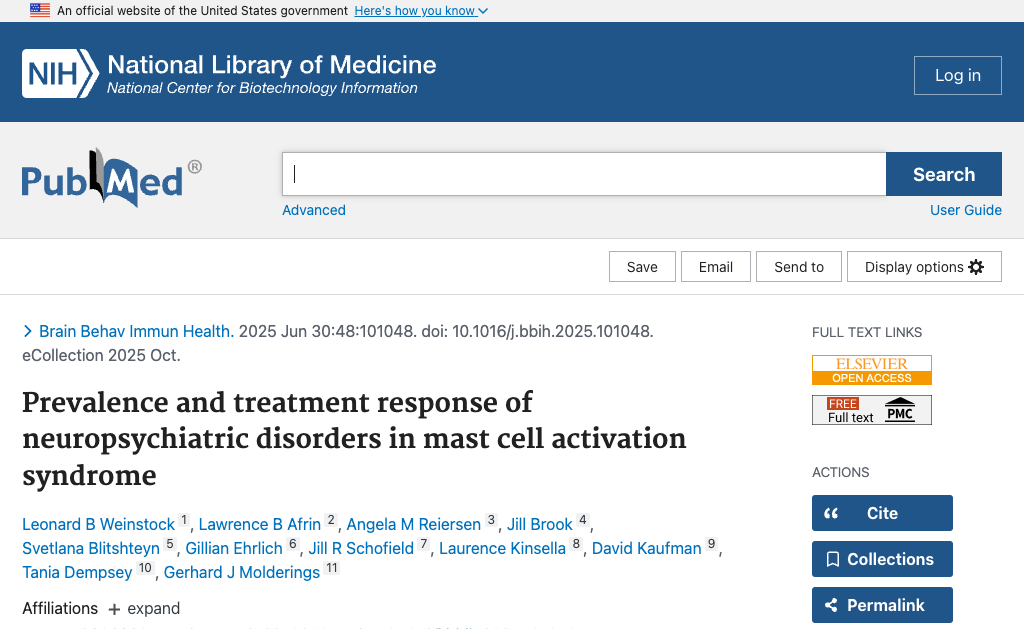Prevalence and treatment response of neuropsychiatric disorders in mast cell activation syndrome.
This large questionnaire study compared 553 people with MCAS to 558 controls and found markedly higher prevalence and odds of a wide range of neuropsychiatric problems in MCAS. Reported neurologic symptoms included fatigue, brain fog, syncope/near-syncope, migraine-like headaches, myalgias/weakness, paresthesias, restless legs, seizure-like episodes, insomnia/sleep attacks, tinnitus, acoustic startle, tics/Tourette’s, tremor, and hypersensitivity to light/sun/pain/odors/scents/noise; psychiatric symptoms included anxiety, agoraphobia, panic, depression, bipolar features, mania/hypomania, psychosis/schizophrenia, hallucinations, OCD, ADHD, anger dysregulation, PTSD, suicidal thoughts, and eating disorders. Most were significantly more common in MCAS, in both women and men, with women showing higher rates across nearly all categories. Self-rated benefit for MCAS-directed therapies showed moderate improvements: antihistamines mean 6.3/10, low-dose naltrexone 5.6/10, and benzodiazepines 5.6/10. Findings support that mast cell dysregulation and its mediators likely affect central and peripheral nervous systems, contributing to neuropsychiatric symptoms; genetic predisposition and life experiences may shape which disorders emerge. These are self-reported data but suggest clinicians should screen for neuropsychiatric comorbidities in MCAS and consider targeted mast-cell therapies as part of management.
